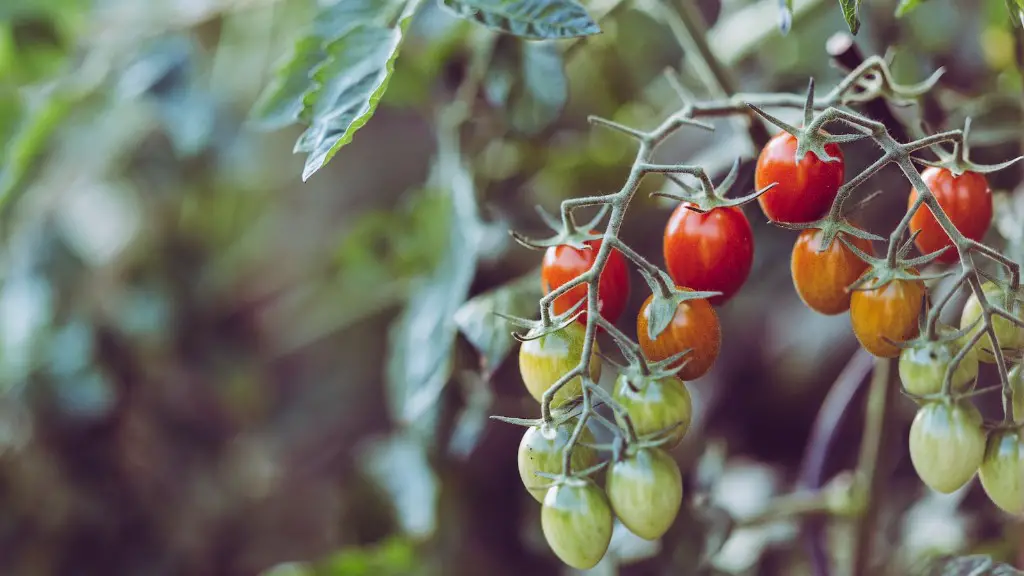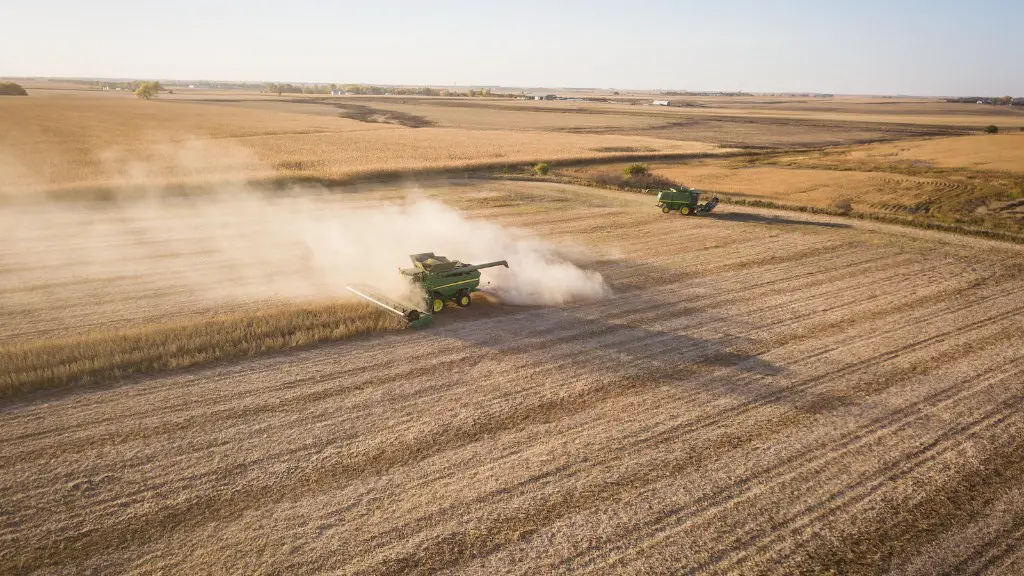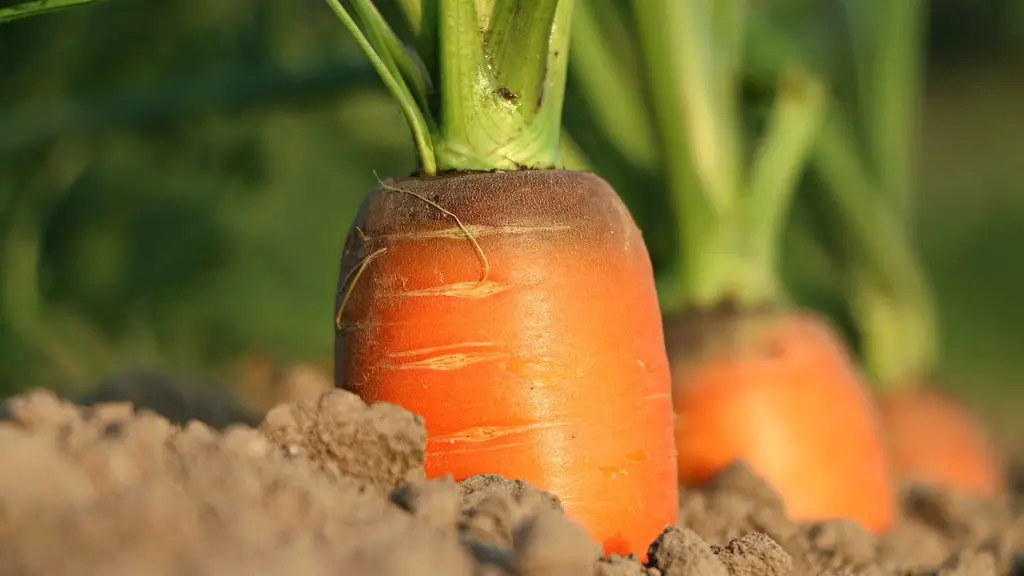In agriculture, EC is short for electrical conductivity, a measure of the ability of a solution to conduct electricity. The EC of a solution is directly proportional to the concentration of dissolved ions in that solution. Therefore, the EC is often used as a measure of the level of dissolved minerals in a solution.
EC stands for electrical conductivity. It is a measure of the amount of dissolved minerals in a solution. The more dissolved minerals there are, the higher the EC.
What does EC mean in farming?
EC is the measure of total dissolved salts in a solution, the factor that influences a plant’s ability to absorb water. In horticultural applications, monitoring salinity helps manage the effects of soluble salts on plant growth.
Plants need a certain level of dissolved salts in order to grow properly, but too much salt can be detrimental to plant health. By monitoring EC, growers can ensure that their plants are getting the right amount of dissolved salts.
Different plants have different optimal soil EC values according to their fertilizer requirements and different growth stages. The optimal EC value for plant growth is usually between 08-18, and should not exceed 25.
What is the normal EC range
Most crops prefer a growing medium EC of 2 to 35 mS/cm. Preferred growing medium EC for salt-sensitive plants is 1 to 26 mS/cm, while heavy feeders, such as chrysanthemum and poinsettia, prefer an EC between 26 and 46 mS/cm.
If your EC measurement is high, it means that there is more water being used up compared to nutrients. To dilute the solution and balance out the measurement, add water. Burnt leaf tips and slow growth are certain signs of your nutrient solution being too strong.
What does EC stand for?
The European Commission (EC) is the executive branch of the European Union. The EC is responsible for proposing legislation, implementing decisions, upholding the EU treaties, and the general day-to-day running of the EU. The EC is composed of 28 members, who are appointed by the member states of the EU. The President of the EC is Jean-Claude Juncker.
Organic matter can improve the quality of your soil by adding essential nutrients and improving its water-holding capacity. In some cases, a combination of irrigation and drainage may be necessary to lower salt concentration and EC. By adding organic matter to your soil, you can create a healthier environment for your plants and improve your overall yield.
What happens if EC is too high?
EC that is too high can result in a physiological drought which restricts root water uptake by the plant, even when the substrate is moist. To correct for high EC, irrigate with clear water to the point of excessive leaching to wash out the extra salts.
If the EC in your soil is too low, your plants will not be able to get enough food and may show symptoms such as leaf discoloration, holes in leaves, brown spots of necrosis, and stunted roots and growth.
Does pH affect EC
The pH of a substance is a measure of the concentration of hydrogen ions present. The higher the concentration of hydrogen ions, the lower the pH. The presence of hydrogen ions will most likely influence the conductivity of a substance.
The electrical conductivity of irrigation water (EC) is a measure of the water’s ability to conduct electricity and is expressed in deci Siemens per metre at 25 degrees Celsius (dS/m). This is a replacement for the old millimhos per centimetre (mmho/cm) measure.
Irrigation water can have a wide range of total salinity, depending on its source. Most surface irrigation water, which comes from snow-fed rivers, has a total salinity of less than about 0.5 to 0.6 dS/m.
What is a good EC for tap water?
If your water’s electrical conductivity (EC) falls between 4 and 7, then you have a fairly normal amount of mineral content. The water likely contains enough calcium and magnesium for good plant growth. However, if your water’s EC is 8 or higher, then you have a high amount of mineral content. This could potentially cause problems for your plants, as the high levels of minerals could interfere with their ability to uptake nutrients. If you’re concerned about your water’s mineral content, it’s best to have it tested by a professional.
The term electrical conductivity (EC) is used to describe the ability of a solution to conduct an electric current. EC is a measure of the amount of inorganic ions present in a solution. The higher the concentration of inorganic ions in a solution, the higher the EC.
What should EC be during flowering
The EC, or electrical conductivity, of your hydroponic nutrients solution is an important factor to monitor during the different stages of your plant’s growth. EC is a measure of the dissolved minerals in your solution and can be easily monitored with an at-home conductivity meter.
During the bloom stage, you’ll need to increase the EC of your solution, as your plants will need more nutrients. The ideal EC range for the bloom stage is between 12 and 15. You should keep the EC at this level until the fattening period, where you should then increase it to 18/21. This is the highest it should ever be.
Monitoring and Adjusting the EC of your solution is crucial for healthy plant growth. By ensuring that your solution has the proper amount of dissolved minerals, you can create the ideal growing environment for your plants.
EC stands for Electrical Conductivity of the solutes in water. As soon as fertilizer is dissolved in water, it separates into positive and negative particles. The more fertilizer is dissolved in water, the higher the EC.
How do you adjust the EC in plants?
If the EC value of water rises during time, it is a sign that plants are unable to use nutrients in water. This may be due to the wrong nutrients or wrong pH value of the water. To reduce the EC value, clean water is added to the water tank. To increase the EC value, nutrients are added to the water tank.
The EC of a nutrient solution can impact uptake by plants, as well as wastage and environmental pollution. Higher EC levels can lead to decreased uptake due to increased osmotic pressure, while lower EC levels can adversely affect plant health and yield.
Warp Up
The term “ec” in agriculture stands for “ecological.” Ecological agriculture is a type of agriculture that focuses on using natural processes to improve crop production and minimize harm to the environment.
In conclusion, EC in agriculture refers to the process of using electric fields to control agricultural pests. This process is considered to be more environmentally friendly than traditional methods of pest control, such as chemical pesticides. EC in agriculture is still in the early stages of development, but it has the potential to revolutionize the way that crops are protected from pests.





